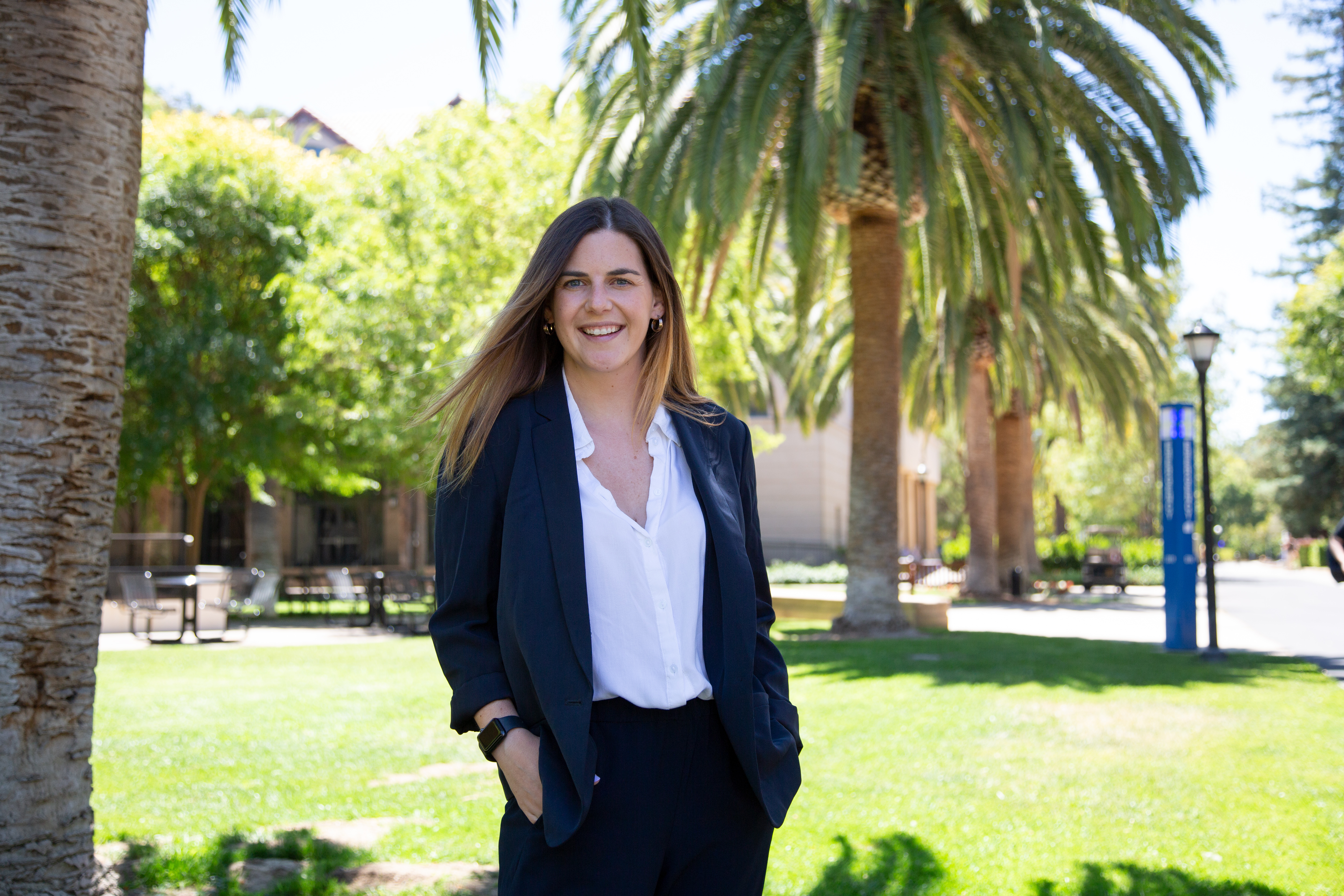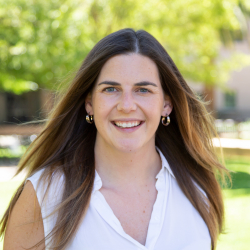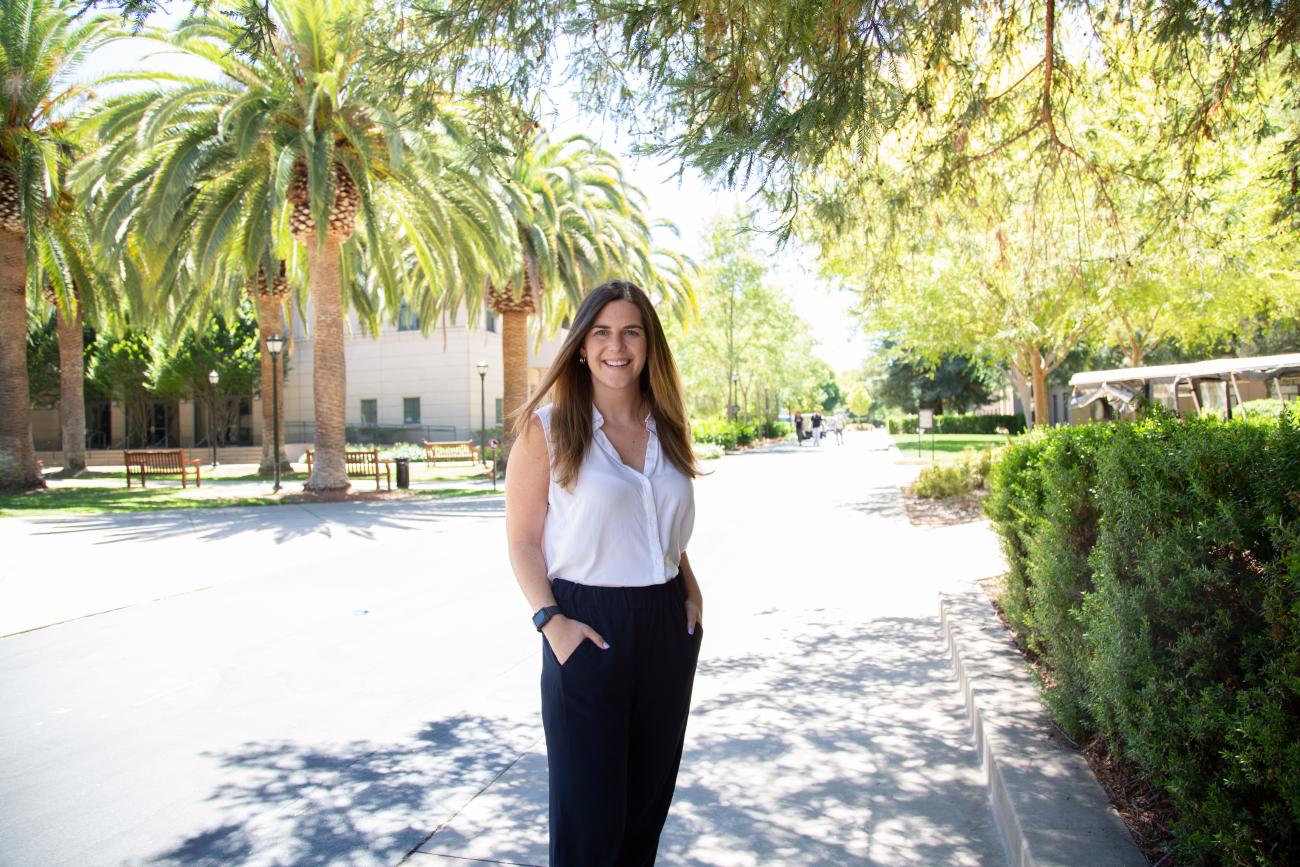
Natalie Bess
What is unusual about POLS?
POLS is so unique for two main reasons. The first is the “choose your own adventure” nature of the program. Students are allowed great flexibility to take classes throughout the GSE, business school, d.school, etc., that they believe will best serve them in their individual learning journeys and future careers. The second special part about POLS is the cohort model. Every week, POLS students come together on Fridays, bringing the knowledge they’ve accumulated from their individualized course plans and diverse pre-POLS experiences to engage in rich conversations about policy, organization, and leadership. This ritual facilitates relationships that much more closely resemble family than classmates.
Why Stanford?
A million reasons! But if for nothing else, come on . . . where else will you be able to have a beach day in January or a single weekend filled with national parks, vineyards, and vibrant San Francisco culture?
How would you describe the other students in your cohort?
My peers are the magic behind POLS. We come from very diverse backgrounds in every sense of the word, but come together through a passion for educational equity so deep it seems to be part of our DNA.
Most POLS students come in with an idea of the change they would like to see in education. What is that for you?
My POLS experience has actually expanded the change I would like to see in education. My list for what I believe America’s students deserve is longer than ever. Our goal should be that every child learns in a diverse classroom with highly trained and well paid teachers that facilitate meaningful academic and social-emotional growth. There is so much work to be done in order to reach this goal, but I’ve met enough incredible educational leaders this year that I feel more optimistic than ever.
What were you doing prior to applying to the GSE?
I was a high school English teacher and teacher-leader at a high-performing, Denver-based charter network for five years, with a year teaching in northwest Spain sandwiched in the middle.

What are your career plans and goals?
I hope to be a leader in confronting the greatest challenges facing education today head-on. How do we improve college completion rates for first-generation students? How do we ensure that long-ignored, marginalized groups receive a meaningful seat at every decision-making table? How do we create policies that ensure resources are equitably distributed to students and schools who need them most? Seeking solutions to these types of complex questions will certainly drive my career after POLS.
What advice do you have for students who are trying to decide whether to attend the POLS program?
The choice to complete a master’s program means a major investment in yourself and your future career. If you want to be a part of making meaningful change in education, the POLS program is the best investment you could possibly make. The connections you will make, lessons you will learn, and time and space you will have to deeply reflect on the most troubling problems facing education right now are absolutely priceless. Finally, you will never find a leadership team as dedicated to ensuring you have a meaningful graduate experience as our POLS leaders, Ann [Jaquith], Kemi [Oyewole], and Mitchell [Stevens]. They are the absolute best.
Any tips for incoming students to get the most out of their time at Stanford?
Spread yourself narrow and deep rather than wide and thin. Don’t try to take every class that interests you or you will not possibly have the time to engage as meaningfully. Instead, really invest in courses that pique your intellectual curiosity the most.

